Mauritania
As the elections for the presidency of the African Development Bank (AfDB) approach, scheduled for May 29 in Abidjan, one of the notable candidates is Sidi Ould Tah, former Mauritanian minister and former Director General of the Arab Bank for Economic Development in Africa (BADEA).
With extensive experience in public finance and development, Ould Tah has presented a vision to strengthen the AfDB's role in the growth and development of the African continent.
A Career Dedicated to Africa’s Development
Sidi Ould Tah’s career has been built around several key roles in both African and international institutions. Holding a PhD in Economics from the University of Nice Sophia Antipolis, he has worked with the Islamic Development Bank, the Arab Authority for Agricultural Investment and Development, and as Mauritania’s Minister of Economy and Finance. In 2015, he was appointed Director General of BADEA, where he oversaw significant transformation, increasing the bank’s assets from $4 billion to nearly $7 billion.
His tenure at BADEA is marked by a special focus on Africa’s economic integration and long-term development strategies aligned with the African Union’s Agenda 2063. These experiences, he explains, give him a unique understanding of the challenges and opportunities the continent faces.
Sidi Ould Tah’s Vision for the AfDB
In a recent interview, Ould Tah outlined his key priorities in the event of his election to the presidency of the African Development Bank. His vision is based on four main areas:
1. Increasing Funding Mobilization: Ould Tah emphasizes the importance of optimizing financial resources. His goal is to multiply the impact of every dollar invested, turning it into ten dollars for Africa’s development.
2. Reforming Africa’s Financial Architecture: He advocates for better coordination between African financial institutions to increase effectiveness and synergies in development efforts.
3. Harnessing Africa’s Demographic Dividend: Ould Tah sees the continent’s youth as a major asset. He believes that leveraging the potential of Africa’s young people will be a key driver of economic prosperity.
4. Building Resilient Infrastructure: A central element of his plan is to invest in sustainable infrastructure projects that can withstand the challenges of climate change while creating long-term economic value.
The Importance of Infrastructure and Economic Integration
Ould Tah also highlighted the crucial role of infrastructure development in facilitating economic integration across the continent. He referred to the African Continental Free Trade Area (AfCFTA) as a key step toward reducing intra-African trade barriers but noted that infrastructure gaps, particularly in transportation and energy, continue to hinder the full realization of AfCFTA’s potential.
"Today, to move a container from Mombasa in Kenya to Dakar in Senegal, the only possible route is maritime. We need to develop land corridors and explore other forms of transport such as waterways," he said. He also advocated for increased electrification across the continent to support industrial growth.
Addressing Climate and Security Challenges
Climate change is also one of Ould Tah’s priorities. While some skeptics doubt the feasibility of green industrialization in Africa, Ould Tah believes that the continent can succeed by adopting an energy mix, combining renewable energy sources and conventional energy to meet its needs.
"We must use all available energy resources to support economic growth," he asserted, emphasizing that Africa is the continent contributing the least to global greenhouse gas emissions, thus presenting a unique opportunity to reconcile industrialization and sustainable development.
Finally, Ould Tah considers security and development to be closely linked. He insists that the AfDB’s efforts must take into account the stability of fragile states and work to create conditions conducive to peace, in order to strengthen the foundations for sustainable development.
"Security and development are inseparable. To reduce the risks of conflict and instability, the AfDB must focus on creating solid foundations for sustainable development, especially in fragile countries," he explained.
A Decisive Election for the Future of the AfDB
With five candidates in the running for the presidency of the African Development Bank, the competition is expected to be particularly fierce this year. In addition to Sidi Ould Tah, the other candidates are: Amadou Hott, Senegal’s Minister of Economy, Planning, and Cooperation, and former AfDB official; Samuel Munzele Maimbo, Zambian expert in development and infrastructure financing; Abbas Mahamat Tolli, Governor of the Central Bank of Chad; and finally, Bajabulile Swazi Tshabalala, a key figure in the South African financial sector and former Deputy Director-General of the African Development Bank.
The results of this election will mark a decisive step for the future of the African Development Bank, a key institution in the continent's development efforts.





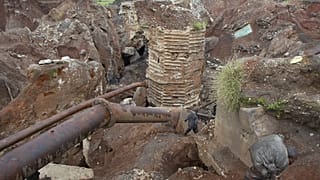
![DRC-US mineral pact offers optimism—and inherent hurdles [Business Africa]](https://images.euronews.com/articles/stories/09/58/59/54/320x180_cmsv2_c6315012-f640-5240-8a73-2059ae64d5b8-9585954.jpg)
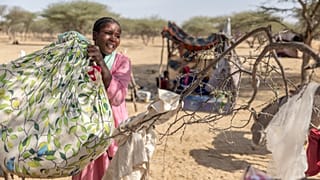
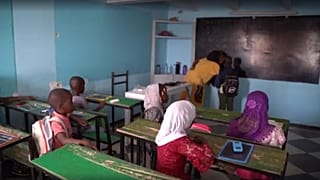
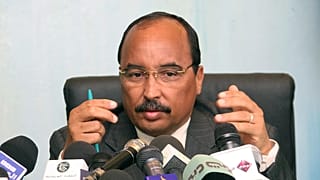
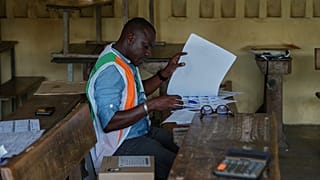
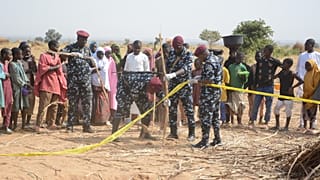
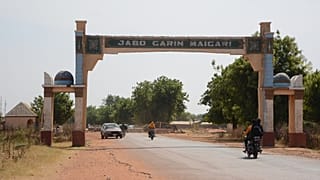
11:18
Narrative Sovereignty: Africa Reclaims Its Global Voice {Business Africa}
11:17
African central bank governors revive vision for continental monetary integration {Business Africa}
11:17
Simandou iron ore: Guinea’s mega project set to transform global mining [Business Africa]
00:54
France reconnects with Africa as Macron visits Mauritius
11:17
Nigeria on edge as Trump threatens sanctions and military action {Business Africa}
11:16
Côte d’Ivoire: a growing economy despite inequalities [Business Africa]